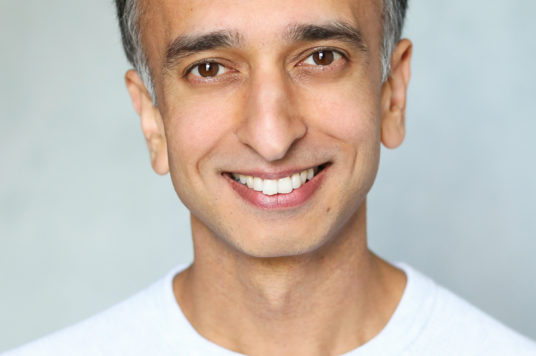“I think St George’s response showed the NHS at its very best” – Interview with Dr Adil Akram, Governor
As part of our series of interviews with the Trust’s governors, we spoke with Dr Adil Akram, who represents the borough of Wandsworth.
He spoke to us about his lifelong connection with St George’s as well as why he thinks local people should become members and get more involved with the Trust.
Why did you want to become a governor?
“My Dad passed away at St George’s in April 2020. He had been cared for by so many amazing staff on different wards across St George’s in the last few years of his life. When the opportunity came up, I felt I could use my personal experience and professional knowledge and skills to make a useful contribution to how St George’s is governed.”
Tell us about your connection with St George’s?
“I have a lifelong personal connection with St George’s. I was born here and have lived in Wandsworth most of my life. My Dad was a doctor here too, based in the Blood Transfusion service for the last 20 years of his career. St George’s is where my children were born, including one while I was working here on the maternity wards in Perinatal Psychiatry! I was also an Academic Clinical Fellow and then Honorary Senior Lecturer in the medical school.”
What do you enjoy about being a governor?
“I enjoy contributing to an essential part of the governance systems that are in place to help guide the Trust Exec Board and Non-Exec Directors. As a former governor in another local NHS Trust I feel I bring useful skills to help understand, interpret and discuss lots of relevant information and this has certainly been necessary for this role! I enjoy discussion and collaboration with my fellow Governors and feel we all are keen to help improve the Trust and give supportive feedback and challenge when necessary.”
Why do you think local people should become members of the Trust?
“The Trust belongs to the local people of the communities it serves. It can only be a good thing for local residents of Wandsworth, Merton and other areas it serves to become members and let the Trust know how they experience the care offered by St George’s, both things that are good and things that need to improve. Be part of the process to help shape the NHS health services you want.”
Finally, what are your thoughts on the way St George’s and its staff have responded to the Covid-19 pandemic?
“I’m so impressed by the way St George’s has responded to the Covid pandemic. From last year’s outbreak, having to think flexibly and adapt all services to deal with a rapidly spreading global health emergency, tripling ITU capacity to respond, thinking outside the box to ensure emergency quality care is delivered whilst dealing with daily pressures and emerging new evidence has been the toughest healthcare challenge in living memory for most of us.
“I must pay tribute to the entire NHS staff here across all groups, from the cleaners to the clinicians, the porters to the profs. Because its remarkable how all NHS staff at St George’s have managed to persevere in the toughest of personal and professional circumstances. People coming together, to get us all through it together.
“I think St George’s response showed the NHS at its very best. A beacon to the world of what free high quality healthcare should be. Volunteering in the Covid vaccination clinics has also been so rewarding personally, to hear so many people finally feel that there is light at the end of the tunnel for all of us coming through such a difficult year.”


